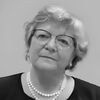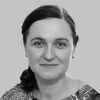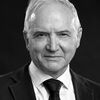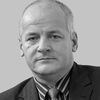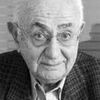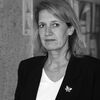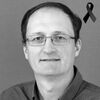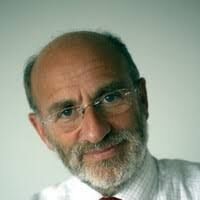Our mission is to reduce the burden of major acute respiratory virus infections by fostering stakeholder communication and cross-disciplinary research in Europe.
- Home
- About ESWI
- ESWI members
Members and associate members
Board of Directors (voting members)
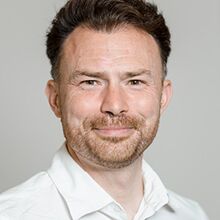
Nationality: American, British
Position: Professor of Applied Evolutionary Biology, University of Amsterdam Faculty of Medicine
Research field: Virus Evolution
ESWI member since 2019
Colin Russell is a professor at the University of Amsterdam School of Medicine. His research focuses on the evolutionary dynamics of human respiratory viruses and the immune responses that control them. He has worked extensively on the within-and-between host evolution of influenza viruses, influenza virus vaccine composition, and issues related to diagnostic and sequencing resource allocation for virus surveillance. Professor Russell regularly advises a wide variety of international organisations, including WHO, on topics ranging from surveillance to pandemic preparedness, vaccine design, and test-to-treat programs. Colin is the Chair of the ESWI since 2023 and the Chair of the EU Steering Group on Influenza Vaccination since 2024.
- Competition between transmission lineages mediated by human mobility shapes seasonal influenza epidemics in the US
- Wrap up - Unpacking intervention strategies for acute respiratory viruses
- Uncovering the Contrasts and Connections in PASC: Viral Load and Cytokine Signatures in Acute COVID-19 versus Post-Acute Sequelae of SARS-CoV-2 (PASC)
- When should you take antiviral drugs?
- What is hybrid immunity?
- Scientific highlights of the 9th ESWI Influenza Conference
- Determinants of epidemic size and the impacts of lulls in seasonal influenza virus circulation
- Webinar: Immunisation & Treatment
- Burden of acute respiratory virus infections
- The Ninth ESWI Influenza Conference: Highlights
- Burden of disease - The economic and societal impact of acute respiratory viruses
- ESWI pandemic preparedness summit: where science and policy meet
- Celebrating ESWI 30 years!
- SARS-CoV-2 diagnostic testing rates determine the sensitivity of genomic surveillance programs
- test
- “Flu, COVID and RSV: How to vaccinate?” symposium at Options XI
- Using mathematical modelling to predict virus evolution and inform pandemic response
- ESWI Summit 2022: Pandemic Preparedness, Where Science and Policy Meet
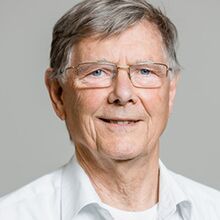
Nationality: Dutch
Position: Founding Director of the Center of Infection Medicine and Zoonosis Research and Guest-Professor at the University of Veterinary Medicine Hannover
Research fields: Virus infections of humans and animals
Professor Osterhaus is the Founding Director of the Center of Infection Medicine and Zoonosis Research at the University of Veterinary Medicine Hannover, Germany, and cofounder/CSO of Viroclinics-DDL BV (currently part of CERBA) and ViroNative BV (both spin-outs of Erasmus MC) and CR2O. He was head of the Department of Viroscience at Erasmus MC Rotterdam until 2014.
He has a long track record as a researcher and project leader of numerous major scientific projects. At Erasmus MC, he has run a diagnostic virology lab with more than 40 staff and a research virology lab with over 150 personnel. His research programme follows an integrated “viroscience” concept, bringing together world-leading scientists in molecular virology, immunology, epidemiology, pathogenesis, and intervention studies for human and animal virus infections.
Among his major accomplishments are the discovery of more than 80 viruses of humans and animals (e.g. human metapneumovirus, coronaviruses, influenza viruses), elucidation of the pathogenesis of major human and animal virus infections, and development of novel intervention strategies. This has enabled health authorities like the WHO to effectively combat disease outbreaks like SARS and avian influenza. The established spin-outs are among his other societally relevant successes, allowing effective testing and refining of diagnostic tools and other intervention strategies.
Professor Osterhaus has acted as mentor for more than 85 PhD students and holds several key patents. He is the author of more than 1360 scientific papers in peer-reviewed journals, together cited > 90,000 times with an H index > 145. He holds several senior editorships and has received numerous prestigious awards. He is a member of the Dutch and German National Academies of Sciences, member of the Belgium Academia of Medicine, and Commander of the Order of the Dutch Lion.
- Intervention Strategies: hMPV - the (not so) new kid on the block
- Flu vaccines - advancements, challenges, and global impact
- Which viruses could cause the next pandemic?
- Which viruses could cause the next pandemic?
- Will there be a new pandemic? When will it be and are we better prepared for it this time around?
- Is COVID-19 worse than influenza?
- Scientific highlights of the 9th ESWI Influenza Conference
- ESWI Summit 2024: Rapporteur from the RSVVW’ 2024 meeting in Mumbai
- Webinar: Immunisation & Treatment
- ESWI Respiratory Virus Summit 2024
- The Ninth ESWI Influenza Conference: Highlights
- The Influenza B/Yamagata lineage appears to become extinct: implications for quadrivalent influenza vaccines?
- RSV looking towards the future
- ESWI pandemic preparedness summit: where science and policy meet
- Respiratory Virus Summit 2023
- Celebrating ESWI 30 years!
- test
- “Flu, COVID and RSV: How to vaccinate?” symposium at Options XI
- ESWI Summit 2022 – Stakeholder Debate
- ESWI Summit 2022 - Conclusions
- World Influenza Conference
- ESWI Summit 2022: Pandemic Preparedness, Where Science and Policy Meet
- Pandemic Preparedness Planning in Peacetime
- World Vaccine Congress Europe 2022
- Flu and COVID-19 booster Vaccinations: where do we go?
- RSV Disease in a COVID-19 era
- COVID-19 Treatment and Medication
- Childhood Influenza Vaccination and treatment in a COVID-19 era
- Vaccination in a COVID-19 era
- Should we introduce national live vaccination programmes for children?
- Influenza in persons living with diabetes: Pathogenesis and prevention
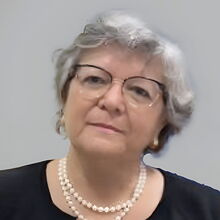
Nationality: Italian
Position: Research Director, CNR Ageing Branch, Neuroscience Institute, Padova (Italy)
Research Fields: Clinical epidemiology and geriatrics. Main focus on lifelong approach to healthy ageing
ESWI member since 2022
Dr. Stefania Maggi received her degree in Medicine and Surgery from the University of Padua, Italy in 1983. She also attended the Graduate School of Geriatrics and Gerontology from the same University until 1987 and in 1988 she received her Master in Public Health from John Hopkins University in Baltimore (USA). Dr. Maggi also holds a PhD in Clinical Pathophysiology from the University of Padua, which she received in 2000.
Dr. Maggi has a specific interest in the epidemiology of ageing and in the analysis of factors promoting health ageing in a lifelong approach. From 1983-1985, Dr. Maggi worked as an attending physician at the Internal Medicine Department for the University Hospital in Padua before she spent the years of 1988-1989 as a postdoctoral fellow at the National Institute of Arthritis and Musculoskeletal and Skin Diseases (NIAMS), for the National Institute of Health (NIH) in Bethesda, Maryland (USA). From 1989-1993, she worked as the Coordinator for the WHO Program on Ageing, before she moved on to work as a researcher in the Ageing branch at the Institute of Neuroscience, Consiglio Nazionale Delle Ricerche (CNR), Padua. Dr. Maggi worked as a researcher from 1993-2007 before becoming Research Director for the same branch and institute, in 2007, a position she currently holds. In this position, she coordinates several national and international research projects on nutrition, vaccines and lifestyle as key factors for promoting healthy ageing. Dr. Maggi is also an Adjunct Professor in the Graduate Schools of Geriatric Medicine at the University of Padua, which she has been since 2000.
Moreover, Dr. Maggi is the Editor in Chief of “Ageing Clinical and Experimental Research” (Springer) and has more than 800 publications, both in peer-reviewed journals and many book chapters.
- RSV - the bumpy road towards a vaccine
- Will individuals need an annual COVID-19 vaccination?
- What are the risks of RSV infections for older individuals?
- ESWI Respiratory Virus Summit 2024 recap video
- Welcome By The Co-Chairs at the Respiratory Virus Summit 2024
- Burden of acute respiratory virus infections
- ESWI Respiratory Virus Summit 2024
- Communication: Raising awareness on the burden of disease
- ESWI Symposium: RSV Looking towards the future
- Burden of disease - A focus on acute respiratory viruses in older adults
- RSV looking towards the future
- Respiratory Virus Summit 2023
- A geriatrician's insight into reducing the burden of disease in older adults
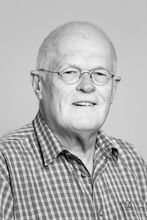
Nationality: Dutch
Position: Retired General Practitioner and vocational trainer, Amersfoort, The Netherlands
Research fields: Clinical aspects of influenza vaccination
ESWI member since 2001
Dr. van Essen became a General Practitioner in 1976 and Vocational Trainer in 1981 based in Amersfoort, the Netherlands. He was also Assistant Professor (since 1992) at the Julius Center for Health Sciences and Primary Care, University Medical Center, Utrecht. Dr Van Essen obtained his degree at the University of Groningen (M.D. and G.P.) and at Utrecht University where he received his Ph.D.
He is chair of the Dutch Influenza Foundation. From 2000-2004, he was also the President of the Dutch College of General Practitioners. From 1996 to 2000 he was editor of Bijblijven, a Dutch CME-Journal.
Known on TV as Dr Ted, he is well known in The Netherlands for his work as a TV doctor, providing his medical insights for a wide and varied national audience. He was a member of the board of several leading healthcare institutions, including the Supervisory Board of Dimence, a large mental healthcare institution in Overijssel.
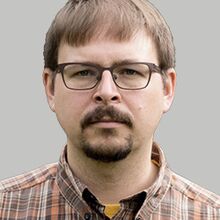
Nationality: Austrian
Position: Professor of Vaccinology at the Department of Microbiology at the Icahn School of Medicine at Mount Sinai (New York, USA) and Professor of Infection Medicine at the Medical University of Vienna (Austria)
ESWI member since 2022
Florian Krammer, PhD, graduated from the University of Natural Resources and Life Sciences, Vienna. He received his postdoctoral training in the laboratory of Dr. Peter Palese at the Icahn School of Medicine at Mount Sinai, New York working on hemagglutinin stalk-based immunity and universal influenza virus vaccines.
In 2014 he became an independent principal investigator and is currently the endowed Mount Sinai Professor of Vaccinology at the Icahn School of Medicine at Mount Sinai. He is also the co-director of the Center for Vaccine Research and Pandemic Preparedness (C-VaRPP). Furthermore, since 2024, Dr. Krammer is Professor for Infection Medicine at the Ignaz Semmelweis Institute at the Medical University of Vienna.
Dr. Krammer's work focuses on understanding the mechanisms of interactions between antibodies and viral surface glycoproteins and on translating this work into novel, broadly protective vaccines and therapeutics. The main target is influenza virus but he is also working on coronaviruses, flaviviruses, hantaviruses, filoviruses and arenaviruses. He has published more than 400 papers on these topics. Since 2019, Dr. Krammer has served as principal investigator of the Sinai-Emory Multi-Institutional Collaborative Influenza Vaccine Innovation Center (SEM-CIVIC), which develops improved seasonal and universal influenza virus vaccines that induce long-lasting protection against drifted seasonal, zoonotic and future pandemic influenza viruses.
- Characterization of the glycoproteins of novel fish influenza B-like viruses
- Next-generation seasonal influenza virus vaccines need a neuraminidase component
- Flu vaccines - advancements, challenges, and global impact
- What is the difference between monovalent and polyvalent vaccines?
- How are vaccines made?
- A chimeric haemagglutinin-based universal influenza virus vaccine boosts human cellular immune responses directed towards the conserved haemagglutinin stalk domain and the viral nucleoprotein
- The Nomadic Life of a Scientist
- Is eradication of influenza B viruses possible?
- SARS-CoV-2-infection- and vaccine-induced antibody responses are long lasting with an initial waning phase followed by a stabilization phase
- Sequential vaccinations with divergent H1N1influenza virus strains induce multi-H1 cladeneutralizing antibodies in swine
- We need to keep an eye on avian influenza
- Universal flu vaccines – soon a reality?
- Why Are Lots of Kids Likely to Be Sick This Holiday Season?
- Assessment of a quadrivalent nucleoside-modified mRNA vaccine that protects against group 2 influenza viruses
- 8th International Influenza Meeting
- Childhood Influenza Vaccination and treatment in a COVID-19 era
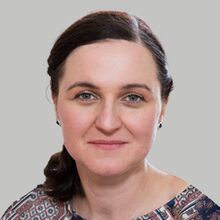
Nationality: German
Position: Head of Department, Leibniz Institute of Virology (Germany); and Professor of Virology, University of Veterinary Medicine Hannover, Germany
Research fields: Interspecies transmission and pathogenesis of influenza A viruses; High-risk groups of influenza (pregnancy, asthma, obesity); New antiviral strategies against influenza
ESWI member since 2009
Gülşah Gabriel is head of the department Viral Zoonoses - One Health at the Leibniz Institute of Virology (LIV) in Hamburg and professor for Viral Zoonoses at the University of Veterinary Medicine Hannover. Her research focus is to understand the molecular basis of influenza A virus interspecies transmission from birds to humans as well as pathomechanisms in high-risk groups.
During the COVID-19 pandemic, her research group was among the first to identify key pathomechanisms that are currently discussed to contribute to long-term consequences after acute respiratory infections. These include SARS-CoV-2 replication in human adipose tissue (Zickler et al., Cell Metabolism 2022) and altered sex hormone metabolism in COVID-19 patients (Schroeder et al., Emerging Microbes & Infections 2021; Stanelle-Bertram et al., Cell Reports Medicine 2023).
In 2009, Gülşah Gabriel was the first winner of the ESWI Best Body of Work Award. She was elected Vice Chair of ESWI in 2014. She has received many prestigious awards for her research, e.g. the Robert-Koch Förderpreis awarded from the Robert-Koch Foundation, the Best Minds Award from the Leibniz Association and the DZIF Award for Translational Infection Research from the German Center for Infection.
Since 2024, Gülşah Gabriel is speaker of the newly established Leibniz Lab Pandemic Preparedness: One Health, One Future that combines the expertise of 41 Leibniz Institutes from various disciplines with practical knowledge to develop evidence-based strategies that permanently strengthen the pandemic resilience of science and society.
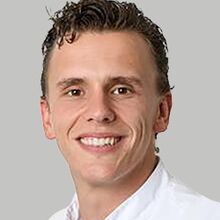
Nationality: Dutch
Position: Intensivist, Spaarne Gasthuis, Amsterdam, The Netherlands; and Senior Scientist, Erasmus MC, Rotterdam, The Netherlands
Research fields: Special interest in acute care and infectious diseases
ESWI member since 2016
Marco Goeijenbier completed his Ph.D. in virology, focusing on "Haemostasis and Virus Infection," at Erasmus University Rotterdam in 2015. He currently serves as a specialist in acute internal medicine and critical care at Spaarne Hospital in Haarlem, The Netherlands. His expertise spans various aspects of infectious diseases, particularly in critical care medicine and viral infections. In addition to his clinical work, Goeijenbier holds a research position at Erasmus MC in Rotterdam, where he mentors PhD students exploring critical care medicine and viral infections. His research interests focus on severe acute respiratory infection (SARI) pathogenesis, epidemiology, and their interaction with the coagulation system.
Some of Goeijenbier’s most published articles include:
- Presence of procoagulant peripheral blood mononuclear cells in severe COVID-19 patients relate to ventilation perfusion mismatch and precede pulmonary embolism
- Determinants of vaccination uptake in risk populations: A comprehensive literature review.
- Benefits of flu vaccination for persons with diabetes mellitus.
- Early Patient-Triggered Pressure Support Breathing in Mechanically Ventilated Patients with COVID-19 May Be Associated with Lower Rates of Acute Kidney Injury
Dr. Goeijenbier is ESWI’s lead member and Chair in the Influenza Diabetes Community (IDC). The IDC connects leading diabetes, patient, scientific, and professional organizations around the common aim of protecting persons living with diabetes from influenza and other viral respiratory diseases like COVID-19.
Starting January 2023, Dr. Goeijenbier has taken on the role of Chair of Medical Research and Education at Spaarne Hospital. Furthermore, since January 2024, Marco is the Editor in Chief for Nature Springer Tropical Diseases, Travel Medicine, and Vaccines.
- If you do not test, you will not know - a focus on COVID-19
- Essential skills and career prospects for early career scientists
- Uncovering the Contrasts and Connections in PASC: Viral Load and Cytokine Signatures in Acute COVID-19 versus Post-Acute Sequelae of SARS-CoV-2 (PASC)
- Can vaccinated individuals still get COVID?
- Is it dangerous to get an influenza and COVID-19 vaccine at the same time?
- Presence of procoagulant peripheral blood mononuclear cells in severe COVID-19 patients relate to ventilation perfusion mismatch and precede pulmonary embolism
- Burden of acute respiratory virus infections
- The Ninth ESWI Influenza Conference: Highlights
- The bidirectional relationship between influenza and diabetes mellitus
- Burden of disease - Long-Covid and other post-infection syndromes
- Virus infections, blood clots and bleeding
- Spotlight on the burden of flu for people living with diabetes
- COVID-19 Treatment and Medication
- Influenza in persons living with diabetes: Pathogenesis and prevention
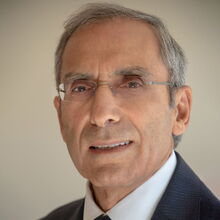
Nationality: British and Cypriot
Position: Family Physician. National Immunisation Lead Royal College of General Practitioners. President British Global & Travel Health Association.
Research Fields: Primary Care Vaccinations
Dr George Kassianos is a GP and the National Immunisation Lead of the Royal College of General Practitioners of which he is a Fellow. He is also President and Fellow of the British Global and Travel Health Association (BGTHA) and Fellow of the Faculty of Travel Medicine at the Royal College of Physicians and Surgeons Glasgow (RCPSG), the International Society of Travel Medicine (ISTM), the European Society of Cardiology (ESC), the British and Irish Hypertension Society (BIHS), The Academy of Medical Educators, and the Higher Education Academy.
Dr Kassianos is Chair of RAISE [Raise Awareness of Influenza Strategies in Europe], a Pan-European Group (20 countries) on influenza, and Board Member of the European Scientific Working Group on Influenza (ESWI). He has served as medical editor of four medical journals, currently serves on a number of editorial boards, and is Associate Editor (Primary Care) of ‘Drugs In Context’ international journal.
Dr Kassianos was the recipient of the Royal College of General Practitioners’ Foundation Council Award (2018), the most prestigious award for services to the College and General Practice.
In October 2020, Queen Elizabeth II appointed Dr Kassianos Commander of the Order of the British Empire (CBE) for his services to General Practice and Travel Medicine.
- Why not a 95-95-95 strategy for influenza by 2030?
- Why vaccinate from a very early age?
- The influenza landscape and vaccination coverage in older adults during theSARS-Cov-2 pandemic: data from Several European Countries and Israel
- Immunisation & Treatment - Travel preparedness and vaccinations
- Influenza Vaccines: What Does the mRNA Platform Have to Offer?
- Reaching for New Heights: Breaking Down Influenza Trends and Prevention Efforts
- Impact of General Practitioner Education on Acceptance of an Adjuvanted Seasonal Influenza Vaccine among Older Adults in England
- What COVID-19 Vaccines Can and Cannot Do: Setting Realistic Goals in the Current Pandemic
- Vaccinations to consider before, during, and after pregnancy
- Childhood Influenza Vaccination and treatment in a COVID-19 era
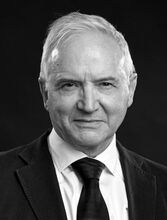
Nationality: British
Position: Respiratory physician and mucosal immunologist, Professor of Experimental Medicine, Imperial College, London
Research fields: Lung immunology, RSV, received a lifetime achievement in work on RSV research (Chanock prize, US, in 2012)
ESWI member since 2008
Peter Openshaw MD PhD CBE is Professor of Experimental Medicine at Imperial College London, UK. A respiratory physician and mucosal immunologist, his research focuses on how the immune response both protects against viral infection but also causes disease.
He has published widely on vaccinology, the immunopathogenesis of pulmonary viral diseases and lung inflammation. He is especially known for his work on respiratory syncytial virus (RSV), influenza and COVID-19, and for the development of human challenge in volunteers. He has co-authored over 400 publications and has an h-index of 105 (Google Scholar accessed Aug 2024). See also: https://orcid.org/0000-0002-7220-2555.
He was the first clinical President of the British Society for Immunology (2013-18) and served on many grant committees and Advisory Boards, becoming an Honorary Lifetime Member of the British Society for Immunology (2019). He has received prizes for his lifetime contribution to RSV research (Chanock Award, 2012), the European Federation of Immunological Societies Award (2014) and the Per Brandtzaeg Distinguished Scientific Achievement Award in mucosal immunology (2024).
He has built strong connections with journalists in print, radio and TV and used social media to promote accurate reporting of science stories, especially in relation to vaccines and respiratory disease. For example, he appeared over 100 times on national and international TV and radio between March 2021 and March 2022, explaining the complexities behind the COVID-19 pandemic response.
He advised the UK government on pandemics (SAGE, 2009-12; Chair/Vice-Chair of NERVTAG, 2015-2022). He was made a Commander of the British Empire for services to Medicine and Immunology in the 2022 UK New Year’s Honours and received the 2024 Imperial College Medal for his work as a Consul, supporting the development of the university’s Ethos, Values and Behaviours (Respect, Collaboration, Excellence, Integrity and Innovation).
- RSV - the bumpy road towards a vaccine
- Is RSV a serious illness?
- How can you tell the difference between RSV and other respiratory diseases, like COVID-19 or influenza?
- ESWI Respiratory Virus Summit 2024 recap video
- Targeted metagenomics reveals association between severity and pathogen co-detection in infants with respiratory syncytial virus
- ESWI Summit 2024: Conclusions
- Welcome By The Co-Chairs at the Respiratory Virus Summit 2024
- Immunisation & Treatment - New approaches to influenza prevention and treatment - lessons learnt from COVID- 19
- Webinar: Immunisation & Treatment
- ESWI Respiratory Virus Summit 2024
- ESWI Symposium: RSV Looking towards the future
- RSV looking towards the future
- Respiratory Virus Summit 2023
- “Flu, COVID and RSV: How to vaccinate?” symposium at Options XI
- A mucosal perspective on pandemics
- Using correlates to accelerate vaccinology
- RSV Disease in a COVID-19 era
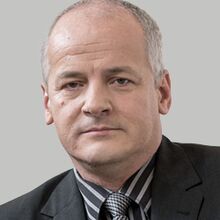
Nationality: Czech
Position: Professor of Epidemiology, Charles University, Prague; and Chair, School of Public Health, Postgraduate Medical School, Prague
Research fields: Preventive medicine, clinical development of new vaccines (pneumococcus; rotavirus; measles, mumps, rubella (MMR); and human papillomavirus)
ESWI member since 2013
Professor Roman Prymula holds the position of Professor of Epidemiology at the Charles University in Prague, School of Medicine Hradec Kralove, Department of Preventive Medicine and Chair of the School of Public Health, Postgraduate Medical School Prague at the same time.
He received his medical degree from Charles University, Prague in 1988 and his PhD from Purkyne Military Medical Academy, Hradec Kralove in 1999. Prof. Prymula also studied at the University of Birmingham, UK, where he completed an International Certificate in Hospital management in 1995. In 1996 he became associate professor of epidemiology.
He has been involved in various research activities in preventive medicine, including clinical development of new vaccines, such as those for pneumococcus; rotavirus; measles, mumps, rubella (MMR); and human papillomavirus. In addition to his active research and teaching activities, he has served as a member of the European Centre for Disease Prevention and Control (ECDC) management board, Chairman of the Central European Vaccination Awareness Group, and Chairman of the Czech Vaccinological Society JEP.
Prof. Prymula is on the editorial board of several scientific journals and serves as a consultant for several national and international organisations. He is the former Minister of Health in the Czech Republic.
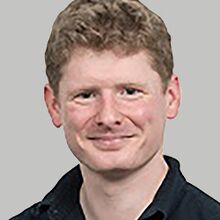
Nationality: British
Position: Professor, MRC-University of Glasgow Centre for Virus Research
Research fields: Molecular biology of influenza viruses
ESWI member since 2015
Prof. Hutchinson received his PhD from the University of Cambridge and was then a postdoctoral scientist at the University of Oxford from 2009 – 2016. In 2016, he set up a research group at the MRC-University of Glasgow Centre for Virus Research, where he is now Professor of Molecular and Cellular Virology.
Hutchinson’s research looks at the factors that make influenza and other respiratory viruses infectious, including the morphology and composition of virus particles, the way in which viruses interact and spread within the host and how these factors shape the course of a respiratory infection. He was named ‘Young Microbiologist of the Year’ by the Microbiology Society in 2007 and has held fellowships including a Junior Research Fellowship at Worcester College Oxford (2010 – 2014) and an MRC Career Development Award (2016 – 2021).
Hutchinson has an ongoing interest in science communication, winning the 2008 Biosciences Federation’s New Researcher Science Communication Award and the 2021 Microbiology Society’s Microbiology Outreach Prize, and in the training of postgraduate research students and early-career researchers. As well as being a member of ESWI since 2015, he sits on the Microbiology Society’s Virus Division and leads the Steering Group for the UK’s Influenza Update Meetings.
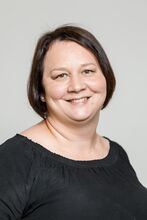
Nationality: Finnish
Position: Clinical Lecturer and Adjunct Professor, Paediatrics and Adolescent Medicine, University of Turku
Research Fields: respiratory tract infections, especially acute otitis media
ESWI member since 2022
Dr. Tähtinen received her Doctor of Medicine from the University of Turku in 2004. After graduating, she worked as a GP and resident in paediatrics in Central Finland and then as a PhD student at the University of Turku. In 2012, she successfully defended her PhD thesis entitled “Treatment of acute otitis media”. The same year, she received the ESPID Young Investigator Award and was selected as a Researcher of the Year by the National Graduate School of Clinical Investigation. After obtaining her PhD degree, Dr. Tähtinen continued her specialisation in paediatrics at the Turku University Hospital, Department of Paediatrics and Adolescent Medicine.
In 2013-2015 and in 2017 Dr. Tähtinen moved to the United States to work as a Postdoctoral Research Fellow at the Boston University School of Medicine and Harvard T.H. Chan School of Public Health. During her time in Boston, Dr. Tähtinen also studied at the Harvard Medical School Global Clinical Scholars Research Training Program in which she graduated in 2015.
Currently, Paula Tähtinen is an Adjunct Professor and Clinical Lecturer at the University of Turku, Finland. She is also working as a paediatrician at Turku University Hospital. She is leading her own research group with the main focus on prevention and treatment of respiratory tract infections. Dr. Tähtinen has been actively involved in the development of scientific and professional education at the University of Turku. She has also served as a Young ESPID (European Society for Paediatric Infectious Diseases) country representative and a committee member at the ESPID Research Networking Committee. In 2022, Dr. Tähtinen received the Helena and Niilo Hallman Prize for the best young researcher in the field of paediatrics.
Associate Members (non-voting)
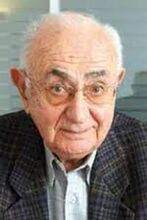
Dr. Hannoun’s education includes a Ph.D. in Microbiology, which he earned in Paris, France.
Dr. Hannoun is an expert at the WHO (viral diseases). His former positions include: Director of the National Influenza Reference Centre, Professor at the Pasteur Institute, Associate Professor at the Université of Paris VII, Scientific Director of GROG systems (Groupes Régionaux d’Observation de la Grippe), Director of the WHO Collaborating Centre for influenza and other respiratory viruses, Honorary Professor at the Pasteur Institute and Vice-President of ‘Société Française de Microbiologie’. He was Co-Founder and Chairman of ESWI from 1992 until 1998. He was Co-Organiser of the Conference ‘Options for the control of influenza II’ Courchevel in December 1992, the Conference “Options for the Control of Influenza IV” in Crete in 2000 and of the “First European Influenza Conference” (ESWI) in Malta in 2002. He was also Editor-in-Chief of the ‘European Journal f Epidemiology’.
Dr. Hannoun’s scientific activities are mainly oriented towards virological and epidemiological studies on arboviruses and influenza. The activity of several arboviruses so far unknown in France has been demonstrated as having occurred between 1960 and 1975, the most important being the West Nile virus. During the following years, national and international development of surveillance networks (GROG) for early detection of influenza epidemics and applications in the field of control of influenza (vaccines and antivirals) and other respiratory viral infections have been major subjects of interest, together with research programmes on virus structures. He pays special attention to infections caused by influenza virus type C and on the characteristics of this little known virus. Further studies in the field of influenza include evaluation of immunisation adjuvants, antiviral screening and tissue culture vaccines in addition to the epidemiological surveillance of respiratory viral infections.

Formal education
05/2000: Habilitation, University of Vienna
March 1995: Graduation
10/88-01/95: Medical school, University of Vienna
1976-1988: Elementary and secondary school, Vienna
Professional experience
since 02/2001: Associate Professor, Institute of Social Medicine, Center for Public Health, Medical University Vienna
11/96-09/2000: Research Assistent, Institute of Social Medicine, University of Vienna
04/1995-11/96: Research Assistent, Institute of Tumorbiology&Cancer Research, Department of Epidemiology, University
Areas of Expertise:
Public Health in general, Public Health and vaccinations with specific focus on influenza and tick-borne encephalitis, pandemic planning, social marketing and public health, epidemiology of infectious diseases
Publications
approx. 100 scientific publications
numerous contributions in medical und lay press
Further Activites
Teaching activity at the Medical Universtiy Vienna
Membership of several oranisations and association, e.g. secretary general of the Austrian association of the promotion of education in vaccination matters
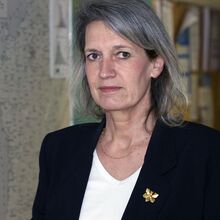
Nationality: French
Position: Head of unit of Molecular Genetics of RNA viruses, Department of Virology, Institut Pasteur
Research fields: Epidemiological and virological surveillance of human influenza viruses and of other respiratory viruses
ESWI member from 1998 – 2022
Associate Member since 2022
Professor Sylvie van der Werf has a degree in Physiology and Biochemistry Agrégation (National Teaching Degree), a Doctorate in Microbiology with an option in Virology at the University of Paris, and a Doctorate in Natural Sciences specialising in Virology, also at the University of Paris.
She heads the unit of Molecular Genetics of RNA viruses which associates three research groups on influenza viruses (Epidemiology and evolution of respiratory viruses / Influenza virus-host cell interactions / Virus interactomics and one research group on hepaciviruses (Hepacivirus / host interactions). Professor van der Werf is also Director of the coordinating center of the National Reference Centre for influenza viruses and WHO National Influenza Center (NIC) for Northern France as well as WHO Reference Laboratory for H5 influenza viruses and for the SARS coronavirus (SARS-CoV).
Past research positions include: Deputy-Director of the Fundamental Virology Course, Deputy-Chairman of the Department of Virology, Director of the URA 1966 CNRS Molecular Virology Unit. She is the author of 70 original scientific papers and more than 30 other scientific publications.

Nationality: German
Position: Professor of Pulmonary Infections Universities Giessen & Marburg Lung Center, and Head of the Infectious Diseases Department at the Giessen University Hospital, Giessen, Germany
Research fields: Influenza Viruses , pneumonia and coronaviruses
ESWI member from 2016 – 2022
Associate member since 2022
Professor Susanne Herold studied medicine at the University of Giessen from 1995 to 2002. She received her doctorate in 2003 with a thesis on monocytes in the lungs and acquired her PhD 2008 at the University of Giessen. Since 2013, she has been a visiting professor at Northwestern University in Chicago for the Department of Pulmonary and Intensive Care Medicine.
In 2018, Susanne Herold took over the professorship for infectious diseases of the lungs at the University of Giessen and at the same time became head of the Infectious Diseases Department at the Giessen University Hospital.
She has been a member of numerous specialist societies, including the Academy of Charitable Sciences in Erfurt and the German Center for Infection Research since 2017. She is also a member of the Scientific Advisory Board of the Robert Koch Institute and deputy chairman of the German Society for Infectious Diseases. Since 2016, Prof. Herold has been leading a DFG- funded clinical research project on lung damage caused by viruses.
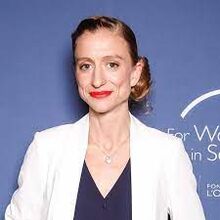
Dr. Kirsty Short is an NHMRC research fellow and head of the viral pathogenesis lab at the School of Chemistry and Molecular Biosciences, The University of Queensland.
Dr. Short and her group focus on reducing the severity of emerging respiratory viral infections. Their group performs a large amount of research on the role of chronic metabolic conditions (namely diabetes and obesity) in severe viral infections. Their work also includes a focus on avian influenza (‘bird flu’) in the context of pandemic preparedness.
Their group also works with SARS-CoV-2 with a particular focus on the role of children in disease transmission, the development of novel therapies and reducing disease severity in patients living with diabetes and obesity.
- What do B- and T-cells do and how do they respond?
- Should I get the influenza vaccine if I have diabetes and why?
- What is the difference between innate and adaptive immune response?
- Burden of disease - A focus on acute respiratory viruses in older adults
- Spotlight on the burden of flu for people living with diabetes
- Influenza in persons living with diabetes: Pathogenesis and prevention

Dr Carolien van de Sandt is a Senior Research Fellow in the Department of Microbiology and Immunology at the Peter Doherty Institute, University of Melbourne (UoM). Her principal area of expertise is in viral and aging immunology.
Carolien completed her PhD in 2016 at the Erasmus University in Rotterdam (Netherlands) where she investigated the longevity, cross-reactivity and immune evasion strategies of influenza-specific CD8 + T- cells, followed by two years of postdoctoral research in the laboratory of Profs Rimmelzwaan and Osterhaus.
In 2018, she was awarded the prestigious European Marie Sklodowska-Curie Action (MSCA) Fellowship and the University of Melbourne’s McKenzie Fellowship to join the Kedzierska laboratory, where she leads the Aging Immunity Research Program which aims to unravel the mechanisms that underly gain- and-loss- of CD8 + T-cell function across human lifespan.
During the pandemic Carolien temporarily relocated to the Netherlands as part of her MSCA fellowship (2020-2021) where she led her own research team at Sanquin Research studying SARS-CoV-2 immunity in healthy and autoimmune patients. In 2022 she was awarded the ARC-DECRA fellowship to continue her Aging Immunity and T-cell Development Research at the University of Melbourne.
Carolien has >50 publications including in leading scientific journals like Nature Medicine, Immunity, Nature Immunology and Nature Communications. The importance of her work has been recognized by 16 Awards including the Viruses Early Career Investigator Award.
- Gradual changes within long-lived influenza virus-specific CD8+ T cells are associated with the loss of public TCR clonotypes in older adults
- Age and Latent Cytomegalovirus Infection Do Not Affect the Magnitude of De Novo SARS-CoV-2-Specific CD8+ T Cell Responses
- Flu vaccines - advancements, challenges, and global impact
- Being a scientist, not just a job
- Newborn and child-like molecular signatures in older adults stem from TCR shifts across human lifespan
- Meet the winner of the Claude Hannoun prize for Best Body of Work: Carolien van de Sandt
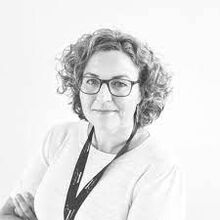
Nationality: Dutch
Position: Associate Professor, Department of Viroscience, Erasmus MC, The Netherlands
Research Fields: Pathogenesis of respiratory virus infections; Neurological complications; Systemic Inflammation; Influenza A viruses; SARS-CoV-2; Enterovirus D-68;
Short description:
Debby van Riel is an Associate Professor at the Department of Viroscience, Erasmus MC, The Netherlands. After obtaining her MSc at the John Moores University in the UK, she continued her PhD studying the cell tropism of influenza viruses, which she defended in 2010. Since then her research focuses on the pathogenesis of extra-respiratory complications of respiratory virus infections, such as influenza A viruses (seasonal, pandemic and zoonotic influenza viruses), Enterovirus-D68, and SARS-CoV-2. These studies have revealed important new insights into the mechanism of systemic virus dissemination, routes of virus invasion into the central nervous system, systemic inflammatory responses, and the development of central nervous system complications. Her work has been published in leading scientific journals including Science, Lancet, New England Journal of Medicine, Nature Materials and Trends in Neurosciences and she received multiple prestigious personal grants (a.o. Veni, Vidi, Aspasia, EUR fellowship, Erasmus MC fellowships) and prizes (ESWI award, Beijerinck Premium).
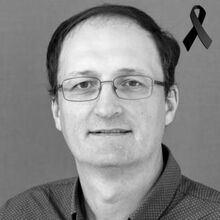
ESWI Tribute to our dear colleague and friend, John Paget 1964-2023
John Paget, senior researcher on infectious diseases at The Netherlands Institute for Health Services Research (NIVEL), was an internationally renowned authority on epidemiology in the field of Influenza, RSV and SARS-CoV-2. He will be remembered for his inquisitive mind and pursuit of tenable solutions to infectious disease challenges. “The diversity makes my work interesting and fun”, he said of his work.
ESWI is very grateful for John’s astute, inspiring, and continuous commitment to educational events on acute respiratory viruses, and for his great support to ESWI Conferences. Our condolences go to his family, his colleagues and the scientific community who worked with him. Gone too soon, he will be dearly missed.


